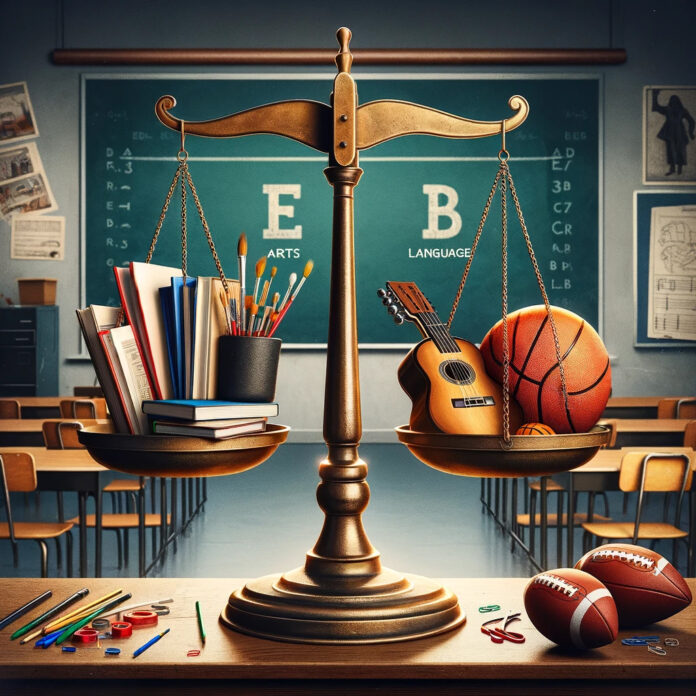In the face of a $12 million budget shortfall, East Brunswick schools have made the difficult decision to cut arts, orchestra, and language programs in some grades. These reductions have sparked concern within our community, especially considering that sports programs, particularly in the 7th grade—which are relatively new—have not been subject to similar scrutiny.
The Impact of Cutting Arts and Languages
The arts and languages are essential components of a comprehensive education. They encourage critical thinking, creativity, and cultural awareness. Studies have shown that students who engage in arts and language studies tend to perform better academically and develop more vital social and emotional skills. Despite this, these programs often find themselves on the chopping block during financial crunches, overlooked in favor of areas perceived to yield more immediate tangible returns, such as sports.
Sports Over Arts: A Short-Sighted Decision?
It is concerning that sports have seemingly been shielded from budget cuts. While sports undoubtedly contribute to student development and school spirit, they should not be prioritized at the expense of academic and cultural education. The decision to maintain sports programs while cutting arts and language offerings, especially when these sports initiatives are relatively new, calls for a critical evaluation of our district’s priorities.
The Unquestioned Priority of Sports Programs
A significant part of this opinion revolves around why sports programs seem immune to budget cuts while arts, orchestra (although 4th grade orchestra is saved for a year), and language programs are not afforded the same protection. This disparity raises questions about the values and priorities guiding budgetary decisions within the East Brunswick school district. Sports are often seen as high-profile elements of school life that boost community spirit and involvement. They are visible, competitive, and tied to school pride, which can make them politically sensitive to cut. However, the relative newness of expanded sports programs in the 7th and 8th grades should not exempt them from the same financial scrutiny applied to other essential academic and cultural programs. The decision to protect these programs while cutting others that also significantly contribute to student development suggests a need for a more balanced approach to budget cuts, one that truly considers the long-term educational welfare of all students.
The Long-Term Costs of Cutting Education
The elimination of arts and language education can have long-term detrimental effects on our students’ readiness for a globalized world. The skills learned through these programs are not merely academic; they are crucial for encouraging well-rounded, culturally competent individuals. As such, cutting these programs may save money in the short term but at a significant cost to our students’ future competitiveness and cultural richness.
A Plea for Reevaluation
We urge the East Brunswick School Board to reconsider these decisions. Balancing a budget should not come at the cost of a well-rounded education. By investing in arts and languages, we invest in our children’s futures, equipping them with the tools necessary to thrive in a diverse and interconnected world.
For a more detailed analysis of the impact of these cuts, you can refer to the discussions and data available on educational platforms and local community forums. Engaging with these resources can provide deeper insights into the importance of maintaining a diverse curriculum and may inspire community actions to support and restore these vital programs.
Resources
- Americans for the Arts: This organization offers comprehensive research and advocacy tools to support arts education. They provide data and arguments for the importance of maintaining arts programs in schools.
Visit Americans for the Arts - National Association for Music Education (NAfME): NAfME provides resources and advocacy materials to promote the importance of music education. Their site includes research on the benefits of music education and tools for advocacy. Visit NAfME
- Education Commission of the States: This site offers a wide range of policy reports and data on education funding, including insights into how budget decisions are made at the state and district levels. Visit the Education Commission of the States
- Save The Music Foundation: This non-profit organization is dedicated to helping schools maintain and revive their music programs. They offer grants and a lot of support material for advocacy. Visit Save The Music




